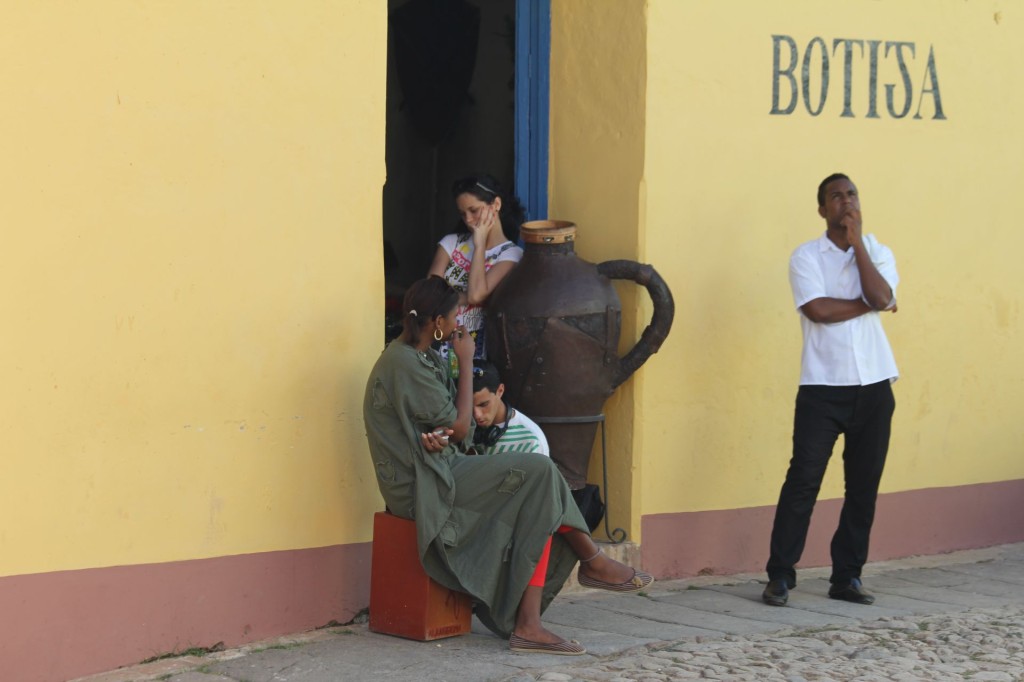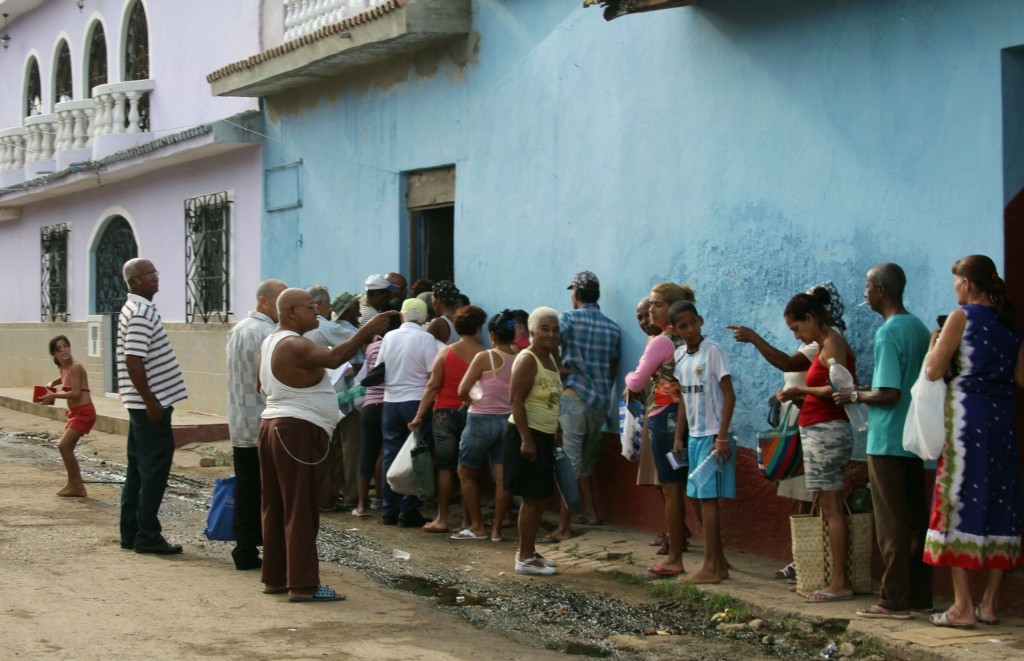 When we started our round trip through Cuba, I was very curious. Would I really find a communist, poor and backward country or has life changed for the Cuban people since Raoul Castro has taken over the power from his brother Fidel? In the last few years, the situation in Cuba has become complicated. There is more and more private initiative, in particular in tourism. Nowadays, Cubans are allowed to open a family restaurant, a “paladar”, in their own house. “Casas particolares”, a kind of bed and breakfast, are becoming more and more popular among Western tourists. Changes have started. Unfortunately, they are not always positive!
When we started our round trip through Cuba, I was very curious. Would I really find a communist, poor and backward country or has life changed for the Cuban people since Raoul Castro has taken over the power from his brother Fidel? In the last few years, the situation in Cuba has become complicated. There is more and more private initiative, in particular in tourism. Nowadays, Cubans are allowed to open a family restaurant, a “paladar”, in their own house. “Casas particolares”, a kind of bed and breakfast, are becoming more and more popular among Western tourists. Changes have started. Unfortunately, they are not always positive!
We were warned in advance about the new phenomenon of ‘jineteros’ (hustlers). These persons offer anything you want: accommodation, restaurants, salsa festivals and excursions. They are normally quite decent and friendly people, but unfortunately their persistence can become annoying. I know that these phenomena are normal in developing countries, especially in Latin America, but I was really disappointed to see that it was so difficult to establish normal and friendly contacts, at least in Havana and other tourist places. Yes, it was easy to start a conversation with Cuban people in the street. They really showed interest in “becoming our friend”, but after five minutes we would find out that all they were interested in was our money.
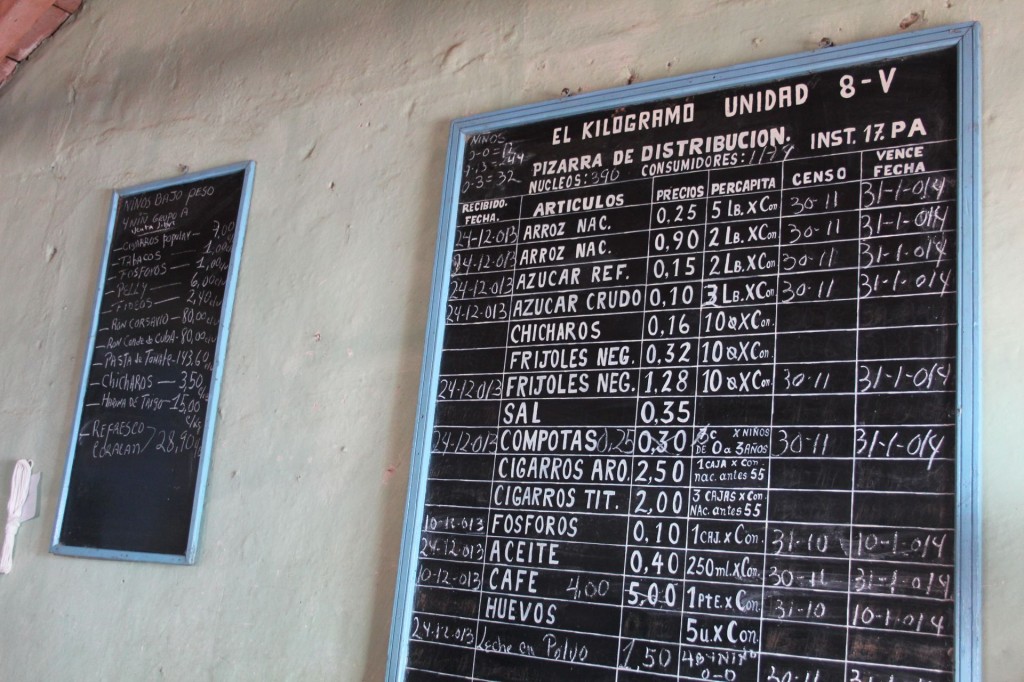 It was thus hard to get a good idea about life in Cuba, but during a guided ‘bicitaxi’ tour we got more information. We were told that the average Cuban salary is about $ 20 per month. This seems extremely low, but we should not forget that the costs of housing, electricity, water and education are very low, too. The Cubans also have social benefits. With the ration booklet (“libreta”), each family gets a basic ration of rice, beans, oil, salt, chicken, bread and sugar. We got the possibility to see such a state shop where people were waiting in a long queue to get their monthly rations that were noted on a big blackboard. Nobody was nervous, people were laughing and talking. Of course, they are used to it! For most of them it has always been this way.
It was thus hard to get a good idea about life in Cuba, but during a guided ‘bicitaxi’ tour we got more information. We were told that the average Cuban salary is about $ 20 per month. This seems extremely low, but we should not forget that the costs of housing, electricity, water and education are very low, too. The Cubans also have social benefits. With the ration booklet (“libreta”), each family gets a basic ration of rice, beans, oil, salt, chicken, bread and sugar. We got the possibility to see such a state shop where people were waiting in a long queue to get their monthly rations that were noted on a big blackboard. Nobody was nervous, people were laughing and talking. Of course, they are used to it! For most of them it has always been this way.
Education is free and an obligatory up to the age of 16. It was a pleasure to see the children in their neat school uniforms. Traveling through the country we discovered that even the smallest villages have an elementary school, nicely decorated with the Cuban flag and revolutionary pictures. Health care is free too: the health care system is one of the best in Latin America and life expectancy is 76 years!
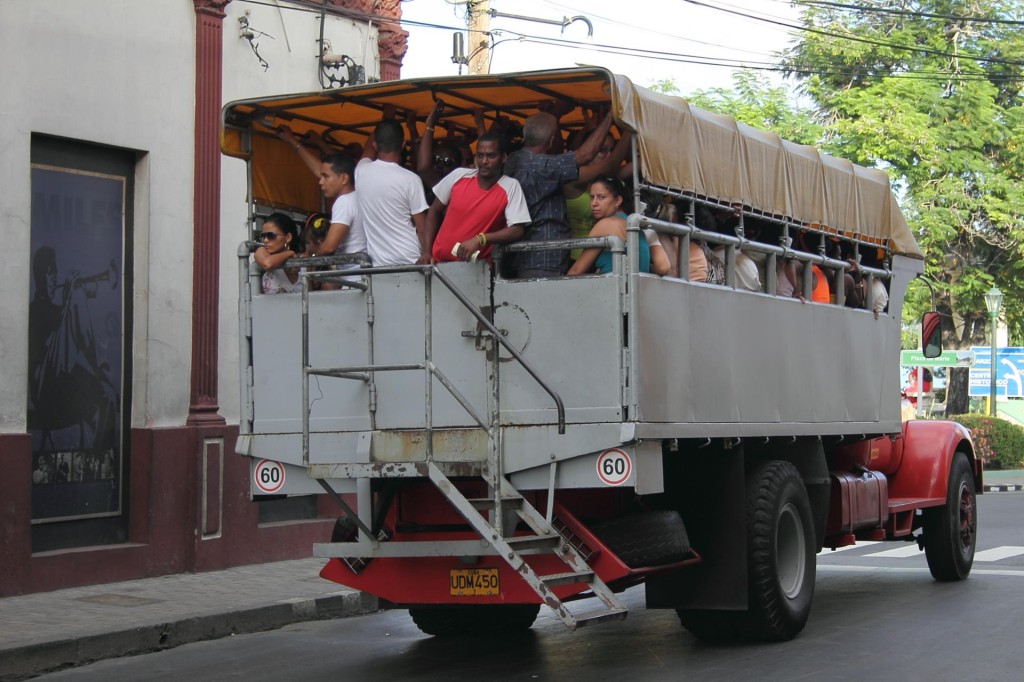 But nevertheless, life is hard for the Cubans. In Havana and other towns, a lot of people live in very old crumbling colonial buildings, which are divided into small apartments. A car is a luxury, but most cars date from the sixties of the last century. Public transport in the whole country is a disaster. We saw people waiting for the bus in each village, on each corner. But most buses are reconstructed old army trucks, always overfull. Rickshaws, bicycles and horse carts are used for local transport.
But nevertheless, life is hard for the Cubans. In Havana and other towns, a lot of people live in very old crumbling colonial buildings, which are divided into small apartments. A car is a luxury, but most cars date from the sixties of the last century. Public transport in the whole country is a disaster. We saw people waiting for the bus in each village, on each corner. But most buses are reconstructed old army trucks, always overfull. Rickshaws, bicycles and horse carts are used for local transport.
Can you imagine how weird it is to live in a country without mobile phones? Without internet? What would our children do without computer games and iPads? But the Cubans know how to spend their leisure time. They pay chess or domino on the streets and in the parks! They listen to music, they sing, play and dance salsa in the ‘casas de la trova’. Or they are just standing quietly on the street corners…
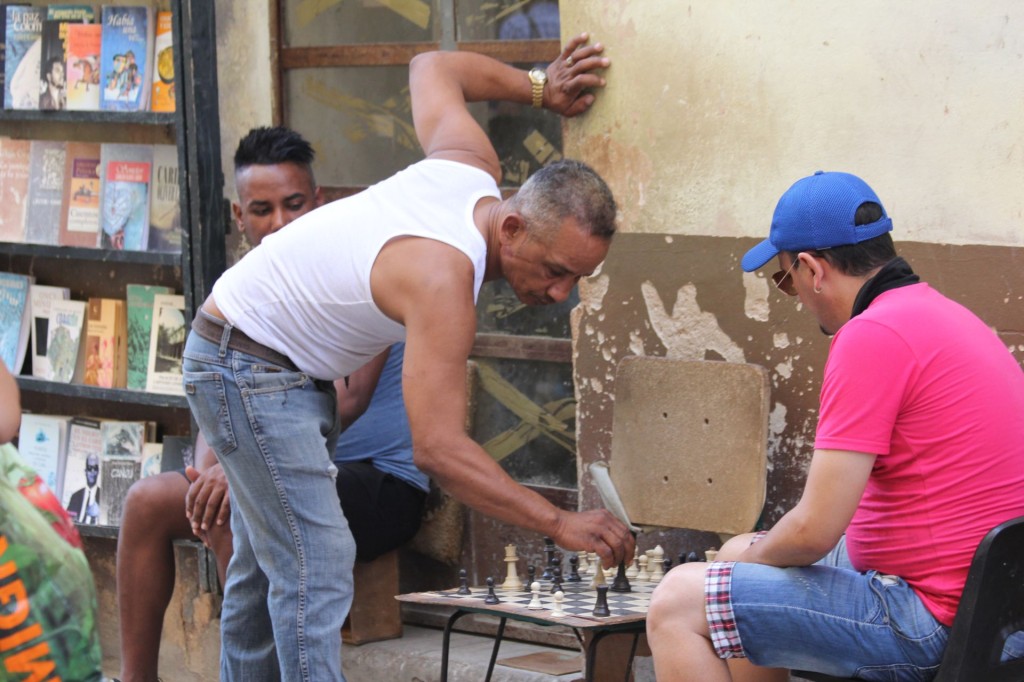 Life in the countryside is different. People in the villages still do not think about making money, they are happy to survive. Many of them live in a simple wooden house or hut without window panes, with the obligatory rocking chairs on the veranda. In the garden they have their own banana trees, tobacco, coffee plants, and a few pigs and chickens strolling around. They do not depend on their “libreta”!
Life in the countryside is different. People in the villages still do not think about making money, they are happy to survive. Many of them live in a simple wooden house or hut without window panes, with the obligatory rocking chairs on the veranda. In the garden they have their own banana trees, tobacco, coffee plants, and a few pigs and chickens strolling around. They do not depend on their “libreta”!
Cuba is a fascinating country. The old communist system is crumbling away, new laws and regulations offer new possibilities. It is true, change comes slowly, but I am sure that nobody can stop it anymore!

